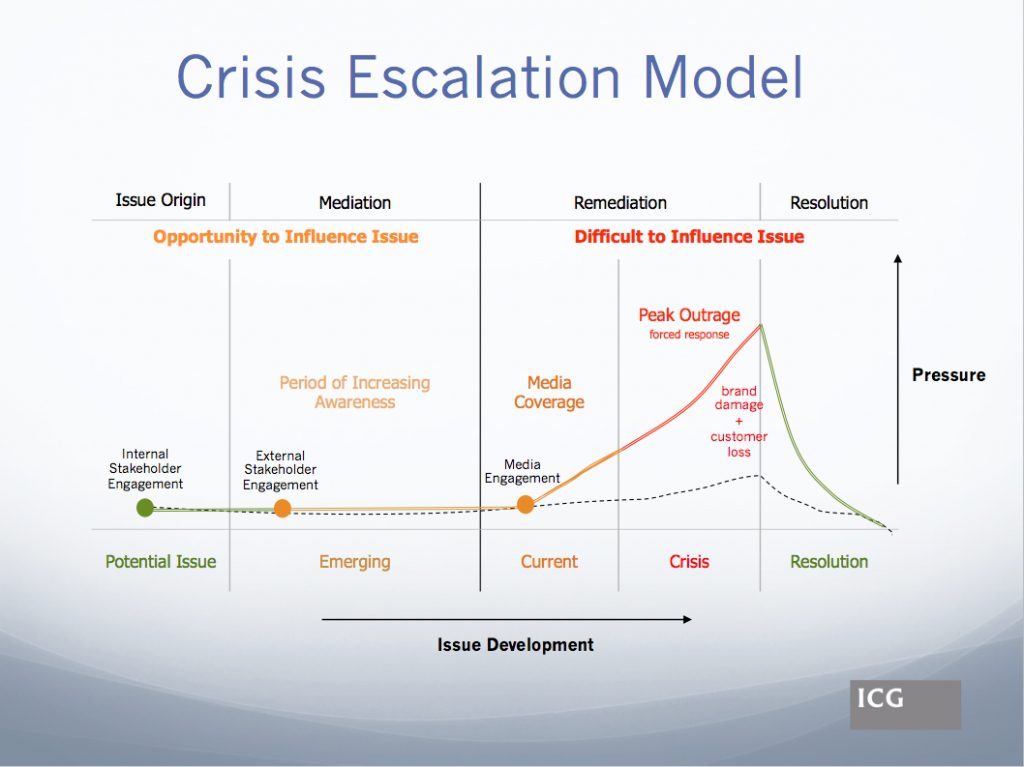Crisis Management – Spot & Stop Crises Before They Stop Your Business
Successful crisis management is more than just damage control. One of the critical features is the continual tracking of relevant issues and the ongoing management of an organization’s communication relationships.
Trying to do this when the crisis is in full swing is certainly leaving it too late.
Any organization with significant stakeholder and/or public exposure should have an issues management plan in place, enabling timely and efficient response, should a media crisis ensue.
An issues management plan tracks the development of matters that could develop negatively and puts in place actions to prepare for relevant internal and external engagement. It should be part of the staple operations kit of any Communication operator and, most importantly, the senior management group and Board.
It is the necessary precursor to the crisis management process that rolls into action when an issue ‘blows-up’.
Unless you track issue development and plan to handle communication around your risks, you are always going to scramble to get on top of the information demand in a crisis.
The recent VW case provides a perfect example of this.
The effective use of an issues management plan could have provided the company with the tools and opportunity to talk to staff, suppliers, dealers, customers and media much earlier and could well have defused the whole issue.
An organization’s leadership can reap significant rewards from effective issues management resulting in positive pre-crisis communication.
Handling problems properly can actually result in positive media attention, strong stakeholder advocacy and enhanced relations with governments and industry organizations.
The alternative can be both painful and costly.




